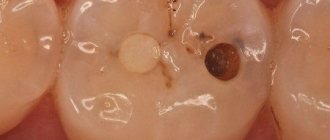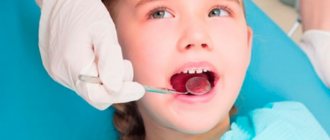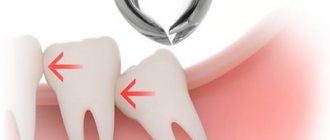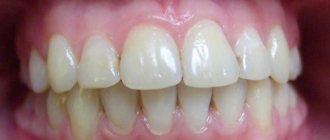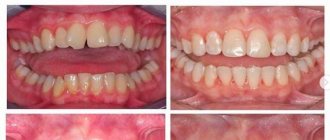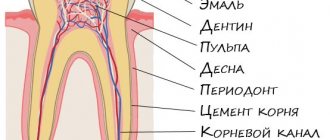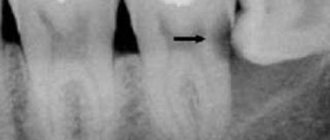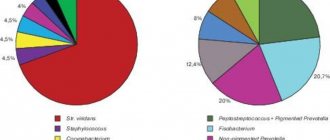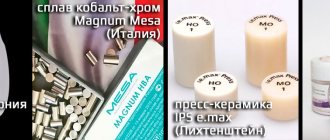Many people have faced this dilemma at least once in their lives. When making a decision, people base their decisions on personal experience, the opinions of friends and acquaintances, and actively search for information on the Internet. If you ask whether it is possible to treat teeth if your throat hurts badly , you get the following answers:
- yes, treat it, because the tooth hurts, and enduring pain is harmful;
- no, you will infect the doctor, and the recovery process after treatment will be delayed.
Interestingly, both sides can be equally right and wrong. Often a sore throat and toothache are related, being the root causes for each other. All that remains is to determine what started to bother you first—the throat or the teeth.
Are sore throat and dental treatment compatible?
Can a tooth cause a sore throat and why does this happen?
Yes, maybe it is explained by anatomical proximity. Therefore, it should be understood that we are talking about molars, and sometimes about “wisdom teeth” located close to the pharynx. If the front incisor and throat hurt at the same time, then they are unlikely to be somehow connected. And inflammation, especially purulent, of a molar can spread to the tonsils and submandibular lymph nodes, causing discomfort in the larynx and redness of the mucous membranes; Other symptoms include gingivitis and imaginary ear pain.
Accordingly, they first go to the dentist to solve the problem with a bad tooth. After treatment, doctors prescribe rinses with antiseptic solutions, which also cope with sore throats.
Toothache during quarantine - what to do?
While you are in quarantine, you are prohibited from visiting municipal dentists and private clinics. If there are no symptoms of infection, you still can’t do it; administrative liability and fines are provided for violating quarantine.
Calling a dentist to your home will also not work. Doctors are not allowed to come to you. How can you get to the dentist during quarantine?
Option 1: Get it BEFORE quarantine
In April, a complete self-isolation regime was established in Omsk. But Omsk residents are allowed to visit medical institutions to receive emergency care. While you are able to move around and have no signs of ARVI, take care of your teeth so that you do not have to have your teeth treated during quarantine.
Inspection. Attention! During the period of anti-epidemiological measures in Omsk, until April 30, Omsk residents are recommended to reduce their time away from home. Clinics are switching to providing emergency and urgent care only. We cancel the recommendation to undergo a preventive examination. If nothing bothers you, there is no redness or bleeding of the gums, swelling, etc. - stay at home. If there is a problem, do not delay treatment. Call 40-45-00 and make an appointment.
Planned treatments. During the period of self-isolation in Omsk, planned treatments must be suspended. If your temporary filling has fallen out, or a temporary orthopedic structure has broken, or temporary cement has crumbled out from under it, call CosmoStom and get further recommendations.
Delete. If the tooth does not bother you, postpone removal until the end of anti-epidemiological measures. However, if pain has already appeared, do not delay removal. It is these problematic “sentenced” teeth that often become the cause of periodontitis, swelling, suppuration, and also an increase in temperature, due to which we will not be able to see you.
Toothpaste. A spare tube in case of quarantine won't hurt. Don't forget to add it to your cart when you buy buckwheat!
Important! Recommendations for pre-quarantine measures were updated on April 2. If the epidemiological situation in Omsk changes, we will inform you about current safety measures.
Option 2: You are not in quarantine, but you have ARVI symptoms
Contact your local dental clinic that provides emergency dental care.
If acute toothache is accompanied by fever and weakness, if you cannot move independently, call the emergency team by calling 03 or 112 (extension 3). From mobile phones: 003 (for Beeline subscribers), 030 (for MTS subscribers), 103 or 030 (for Megafon subscribers).
Option 3: You are ALREADY in quarantine
How to treat a tooth if you have been in contact with a potential carrier of coronavirus and have been sent to quarantine?
It is important to understand that enduring toothache is pointless and dangerous. During quarantine, a dentist in an infectious diseases hospital will help you. How to get to him? Call the clinic that issued you a sick leave certificate and placed you in quarantine. There you will receive recommendations for further actions.
In specialized hospitals, such as Infectious Clinical Hospital No. 1 named after. D.M. Dalmatov (Sergeya Lazo St., 2) has its own dental office. The patient is delivered there in compliance with maximum safety measures.
They do not provide turnkey treatment here. The dentist can remove the problem tooth or put medicine into the canals and place a filling.
Timely emergency care will relieve pain, avoid complications and calmly wait for the end of quarantine. Then the patient will be able to contact his dentist and complete the treatment.
IMPORTANT! If you have swelling of the mouth or face, visible discharge of pus, or unbearable pain, call 03 and call an ambulance. Be sure to list these symptoms and tell them you are in quarantine.
How to reduce discomfort while you wait for the doctor? Follow the recommendations:
- Brush your teeth every time you eat.
- Use not only a toothbrush and toothpaste, but also a irrigator or dental floss and a brush.
- Between meals, rinse your mouth with a warm or cool (not hot!) herbal infusion: chamomile, sage or lemon balm. You can also use oak bark, propolis or soda solution.
- Avoid very hot and cold foods, refrain from sweets.
If necessary, take pain medication strictly as directed. It is important to use a proven medication that your doctor has prescribed to you before and that you tolerate well. Quarantine is not the time for experiments.
Is it possible to treat teeth if you have a cold?
90% of specialists will answer this with a firm “no,” citing the following arguments:
- A healthy body has more strength for regeneration, which will be needed to heal inflamed gums, mucous membranes, sprout new nerve endings and stop bleeding.
- The effect of local anesthetics is reduced, because During inflammatory processes in tissues, the pH of the environment changes to the acidic side. A large dose of the same procaine is required to achieve complete pain relief. Increased doses of medications can cause allergic reactions. Considering that the manipulations are carried out near the throat, this is fraught with Quincke's edema.
- With a wet cough, sputum is actively expelled. At the most inopportune moment, you can cough in the doctor’s face, and healing also worsens. Sputum is characterized by the content of not only dead microorganisms, but also living, pathogenic ones. If it gets on inflamed gums, it can cause infection and complications including osteitis (bone inflammation) and sepsis.
Impossibility of treatment in the presence of such a condition
Before exploring the question of whether it is possible to treat teeth for a cold, it is important to remember that any manifestation of all existing diseases represents a special stressful effect on the functioning of vital organs and processes directly related to the immune protective function.
In the case of dental therapeutic measures, it will require the use of measures aimed at the mobilization complex in relation to the state of the body's immune system. It is precisely because of this feature that the most common and obvious answer from dental specialists to the question of whether it is possible to remove a tooth during a cold is a negative verdict.
Such an answer, which may sound from the lips of the attending physician, is due to the presence of the following points:
- against the background of a reduced level of immunoprotective function, the body is not able to withstand the effects of various viral infections, for which, in the presence of such conditions, it will not be difficult to attack many important processes, which is especially important at the time of mechanical impact on the affected tooth; through surgical intervention into the integrity of the dentition and nearby gums, the slightest damage in the form of a wound, removal of a dental unit, opening of a tooth socket provokes instant infection and mandatory infection of the oral cavity; at times, in order to achieve a successful result during the treatment complex, it is envisaged to use anesthetic agents, which during the cold stage will be characterized by a reduced effect from their use; the presence of such a cold symptom as a runny nose will turn a visit to the dentist into unbearable torture due to the impossibility of staying in the dental chair for a long time with your mouth open, which will provoke difficulty in the patient’s already uneven breathing; the presence of a cough will cause intermittency in the actions of the attending physician with the likelihood of unforeseen situations of unforeseen damage to the oral cavity, which is unacceptable during the treatment complex; It is important to take into account the fact of possible infection of the specialist himself - the dentist, due to the human factor and the doctor’s vulnerability to a viral attack on his body.
However, the importance and necessity of specific therapeutic actions is determined exclusively by the attending physician, who, based on the available incoming data from the inflammatory process or other damage to the integrity of the dentition and oral cavity, makes a decision on prescribing a specific dental intervention.
Why is dental treatment not recommended for sore throat?
A sore throat prevents you from opening your mouth wide, as dentists like. The patient will not sit through the entire procedure with inflamed and tense tissues of the pharynx, and the doctor will not provide the service of the required quality.
In addition, fear of the dentist, layered with fever and sore throat, will cause additional stress and completely undermine the body.
In bacterial forms of sore throat, the tongue is heavily coated with plaque containing microorganisms. This is a danger to the doctor and the patient’s health (autoinfection).
If we summarize all of the above, it turns out that it is better to reschedule the visit to the clinic. After all, with such strong-willed decisions, dentists take care of the health of both themselves and their patients. But sometimes these rules are deviated from in order to help people with sore throats.
Complications after dental treatment during a cold
Viruses most often enter the body through the mucous membrane of the throat or nose, so these tissues are the first to become inflamed. The proximity of the infected area to the treatment site increases the risk of the virus entering the tooth tissue, for example, along with saliva. This can not only slow down recovery after manipulation, but also cause complications:
- sinusitis: if a virus or bacteria enters the maxillary sinuses. This disease is very dangerous because a large amount of pus forms in the sinuses close to the eyes and brain, which leads to intoxication,
- Otitis media: If an infection enters the inner or middle ear and causes inflammation. Severe otitis media can lead to hearing loss,
- pneumonia: if the infection enters the respiratory tract, inflammation will begin in the lungs. Treatment of pneumonia is very long, and if it is started untimely, the risk of death increases,
- meningitis: viruses or bacteria enter the brain through the circulatory system, causing inflammation of its membranes. This disease is characterized by high mortality,
- osteomyelitis: when the infection spreads through the bloodstream or infected surrounding tissue to the bone tissue. The course of the disease is such that it leads to bone deformation or degeneration.
How to relieve toothache during a cold
There are a hundred ways to relieve toothache, but only a dozen methods will be effective. Common control options include:
- non-steroidal anti-inflammatory drugs (NSAIDs) . When people have a cold, they resort to Fervex, Theraflu, Antigrippin and other drugs containing paracetamol. So why not replace the old and harmful paracetamol with a modern, soft and effective nimesulide or meloxicam? Both of the latter substances easily reduce temperature, block pain and fight inflammation;
- local anesthesia . Novocaine or lidocaine is applied to a cotton swab and applied to the diseased area. A sophisticated method suggests crushing 1 tablet of No-shpa (drotaverine) and pouring the resulting powder onto the affected area in the mouth. In both cases, the treated area becomes numb for 2-3 hours;
- traditional methods . The pulse is found on the arm on the opposite side and a clove of garlic is tied. The mechanism is not clear, but the pain subsides;
- warming up The method is effective, but dangerous: purulent inflammations cannot be heated, because this provokes the melting of surrounding tissues by pus enzymes. And only a doctor can tell about the nature of the inflammation.
The listed methods only relieve symptoms, which shortens the time of an attack of acute pain, but do not treat teeth.
And one last thing. Toothache only seems like a trifle at first - people endure it for days because of fear of dentists - but it is fraught with many dangers, just like a cold that is not cured in time. Take care of yourself and take care of your health. You are alone!
Moscow metro station Zvezdnaya, Danube Avenue, 23
Urgent cases of depulpation
Urgent cases of tooth extraction, despite a cold in the body, include all types of fluxes, when the danger of their development prevails over the danger of an inflammatory condition.
The dentist may refuse to remove a tooth if there are herpes sores on the lips, around the line of the mouth, and along the lower edge of the nose. The infection that causes herpes is stronger than cold viruses, and dentists are rightfully wary of it.
During a cold, the body fights germs and infections, which significantly weakens the strength of its immunity. Therefore, the risk of infection of open wounds that appear after dental surgery increases. Here the doctor makes a fundamental decision about what is more important for health – tooth extraction or eliminating problems with colds.
An important argument for postponing tooth extraction due to a cold is the use of anesthetics and painkillers during pulp removal, which can have a bad effect on a person weakened by a cold.
Causes of vomiting
In most cases, vomiting is caused by irritation of the stomach receptors or, in medical terms, has a visceral
origin. The cause is most often acute or chronic diseases of the stomach itself (acute food poisoning, gastritis, stomach ulcers, food allergies). Also, stomach receptors can react to diseases of other organs - the gallbladder, uterus, heart (vomiting is part of the complex of possible symptoms of myocardial infarction).
Vomiting may also be central
origin, that is, caused by pathologies of the central nervous system (brain), such as meningitis, encephalitis, trauma and brain tumors. Vomiting is quite common during migraines. Inner ear problems can also lead to vomiting (in this case, vomiting may occur along with dizziness). If the receptors of the inner ear are excessively irritated (with motion sickness), even a healthy person can vomit, especially if the vestibular apparatus is not trained. Sometimes vomiting is caused by emotional distress (stress) or is a reaction to something that causes extreme disgust (conditioned vomiting).
Irritation of the vomiting center can be caused by toxic substances carried by the bloodstream ( hematogenous-toxic
vomit). Toxic substances can enter the body from the outside (for example, chlorine or carbon monoxide through inhalation), or they can be produced in the body itself as a result of impaired liver or kidney function.
When vomiting is scary
Any attack of vomiting is a very unpleasant experience. Even if a person experiences relief with the resolution of the attack, the vomiting itself is perceived as an extraordinary event, which should not normally occur. Shock to the body, everyday and social inconveniences - all this makes vomiting a process of a different order compared to other reflex actions, such as coughing or sneezing. We always react sharply to vomiting (we don’t ignore it), and rightly so.
However, in some cases, vomiting worries us especially strongly. This is vomiting bile , vomiting blood . Parents are concerned about cases of vomiting in children . Quite often, vomiting is observed during pregnancy , attracting increased attention.
These cases are worth mentioning separately:
- Vomiting bile
Vomiting blood
Vomiting during pregnancy
Vomiting in a child
Contraindications for removal
However, there are situations when the presence of “eights” in the dentition is simply necessary:
- the need to install a bridge-type prosthesis, in which case the third molar performs a supporting function;
- loosening of adjacent molars when the “eights” serve as the basis for applying a splint;
- absence of chewing molars, then wisdom teeth begin to perform a chewing function;
- pregnancy and breastfeeding;
- the occurrence of cardiovascular pathologies in the body;
- hypertensive crisis;
- allergy to drugs used for tooth extraction;
- impaired blood circulation.
At home you can carry out the following manipulations:
Rinse your mouth with antiseptics every night.
Periodic rinsing of the mouth with Furacilin, decoctions of medicinal anti-inflammatory herbs - chamomile, sage, St. John's wort.
If an extracted wisdom tooth hurts, the use of analgesics and antibiotics is indicated to relieve pain - “Lincomycin”, “Nimulid”, “Nise”.
How long does an extracted wisdom tooth hurt after surgery? Typically, the patient’s condition returns to normal on the third day after dental surgery.
When should wisdom teeth be removed?
The grounds (indications) for the removal of third molars are:
- Abnormal location of the 8th tooth (dystopia): the tooth has erupted outside the dental arch, is located at an angle, and injures other teeth and adjacent tissues.
- Retention of a wisdom tooth – the tooth cannot erupt, remaining completely or partially in the jaw bone.
- Complications during the eruption of wisdom teeth: pericoronitis - the formation of an inflamed “hood”, fever. In this case, removal is carried out, in most cases, after the symptoms of inflammation have eliminated.
- The wisdom tooth causes caries or resorption (resorption) of the root located next to the 7th tooth.
- Inflammation of the periodontium or pulp of eights, when it is impossible to carry out effective treatment due to the distant location of the tooth, curvature and multiplicity of its roots and canals.
- Severe destruction of wisdom teeth due to caries.
- In rare cases - for orthodontic indications, in preparation for installing a brace system. Sometimes wisdom teeth are removed during orthodontic treatment.
How is wisdom tooth removal performed in our clinic?
- Before the procedure itself, the patient undergoes diagnostics from the surgeon, as well as, if necessary, professional hygiene and sanitation of the oral cavity.
- Antiseptic treatment of the surgical field is carried out.
- Introduction of anesthesia. Usually, 10-15 minutes are enough for it to start working.
- The tooth itself is extracted using a suitable method.
- After which, if incisions were made, or the resulting hole is too large, sutures are applied.
- Tamponade is performed to stop bleeding.
When should you see a doctor if you are vomiting?
Vomit
- in many cases, a sign that the body is experiencing serious problems and needs cleansing, and therefore, most likely, treatment. If the disease is accompanied by vomiting, this usually indicates that the disease is quite severe.
If the attack of vomiting was a one-time occurrence and there is reason to believe that it was caused by overeating, motion sickness, alcohol poisoning or stress, there is no direct need to consult a doctor. In all other cases, consultation with a doctor is necessary. Especially if attacks are repeated for two days or more, as well as in the presence of diabetes mellitus or other chronic diseases.
Sometimes vomiting requires emergency treatment. You should call an ambulance if:
- vomiting is accompanied by constant or severe abdominal pain;
- there are repeated bouts of vomiting after a head injury;
- along with vomiting, dehydration, dry mouth, and increased urination are observed;
- with deterioration of mental and functional activity in older people;
- there is blood in the vomit (for example, impurities in the form of “coffee grounds”).
